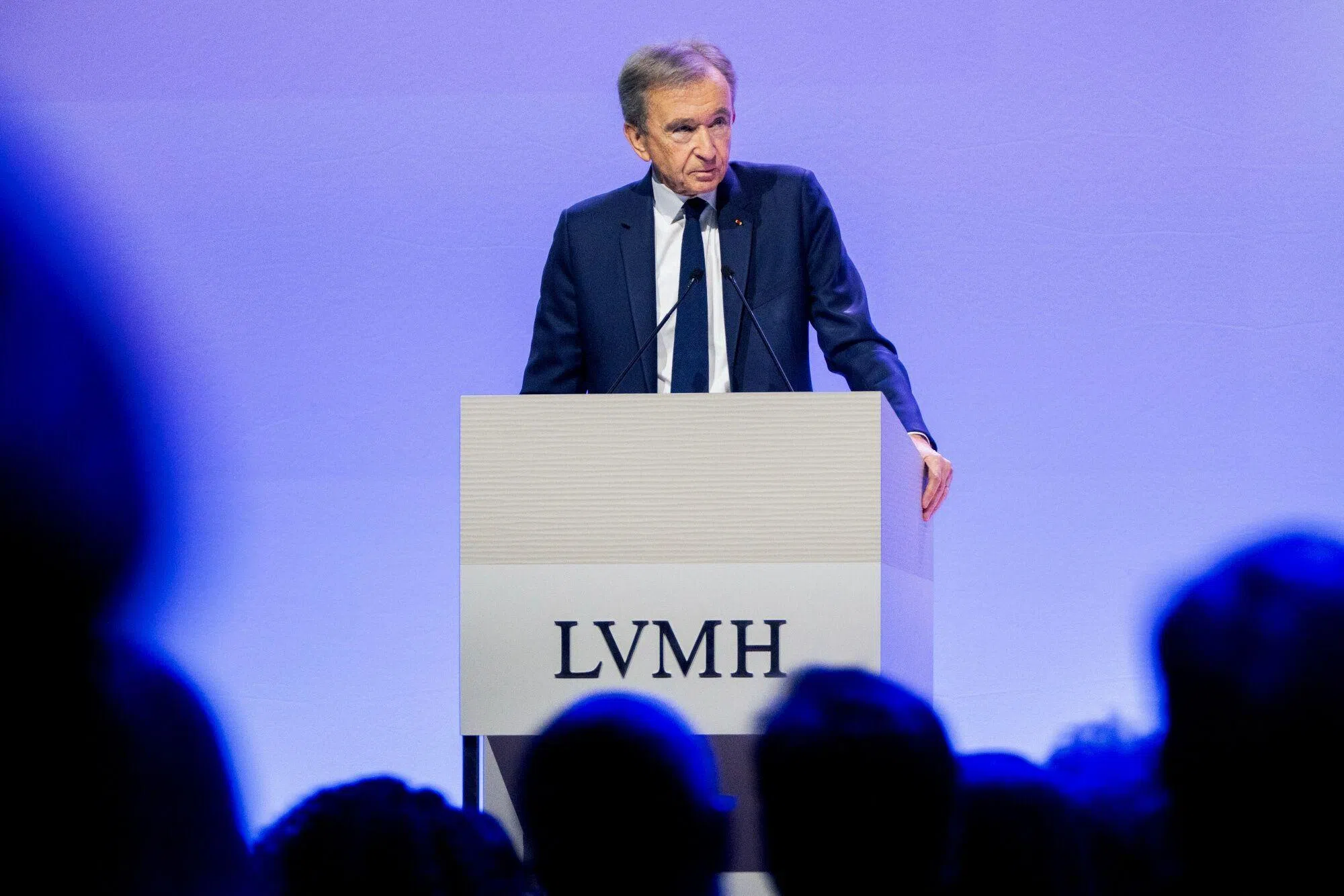LVMH’s sales of fashion and leather goods declined in the fourth quarter, casting doubt on the prospects for a quick recovery in luxury demand.
Sales at the key unit, which includes the Louis Vuitton and Christian Dior brands, slipped 1 per cent on an organic basis as wealthy holiday shoppers remained cautious. Overall revenue at LVMH increased by only 1 per cent.
Both figures were slightly better than estimates but disappointed investors after an upbeat report from rival Richemont earlier this month. The Swiss company reported stronger-than-expected quarterly sales on purchases of its Cartier and Van Cleef & Arpels jewellery in the US, sparking optimism the luxury market was emerging from the doldrums.
LVMH shares fell as much as 5.5 per cent in Paris early Wednesday (Jan 29), after rallying more than 30 per cent from their low of last November. The results pulled down rival luxury firms as well. Gucci owner Kering tumbled as much as 7.8 per cent, while Moncler slid as much as 3.2 per cent.
The results in fashion and leather goods failed “to stand up to the upgraded expectations on the back of the recent Richemont major beat”, said Bernstein analyst Luca Solca in a note.
LVMH’s update raised concerns that the industry’s recovery from last year’s slump – caused in part by Chinese shoppers reining in high-end purchases after years of splashing out – may be slow and uneven.
A NEWSLETTER FOR YOU
Friday, 2 pm
Lifestyle
Our picks of the latest dining, travel and leisure options to treat yourself.
Sales in the region that includes China dropped 10 per cent in the fourth quarter, the only geographic area that did not show growth.
“What I expect is to see a gradual recovery,” LVMH chief executive officer Bernard Arnault said of China during a presentation on Tuesday. “The environment was severely impacted by Covid, then there was a strong recovery, followed by another crisis – the real estate crisis – so it’s going to take some time.”
Overall, the situation globally was better in the period, but the improving trend still needs to be confirmed, chief financial officer Jean-Jacques Guiony said.
Profit at LVMH disappointed, even as the company lowered its overall marketing costs by 5 per cent last year. Recurring operating income dropped 14 per cent in 2024 to 19.6 billion euros (S$27.6 billion), missing estimates. One-time costs had an impact, including charges related to the Paris Olympic Games, Guiony said.
Still, there were signs of resilience at the luxury group. Sales at the watches and jewellery unit, which includes Tiffany and Bulgari, unexpectedly rose in the fourth quarter, more evidence that wealthy shoppers are favouring so-called hard luxury items, rather than the soft luxury of handbags and evening wear. Tiffany’s sales rose 9 per cent in the period.
Arnault struck an upbeat tone at the presentation. He said that 2025 has started relatively well, with Louis Vuitton posting double-digit growth so far this year.
Citigroup analyst Thomas Chauvet said that strong performance in early 2025 “should be taken carefully”, since Louis Vuitton recently launched a high-profile campaign with Japanese artist Takashi Murakami featuring movie star Zendaya.
Arnault also said he’s confident that struggling brand Dior will make progress this year, and predicted a “booming” US market, a country he visited last week for President Donald Trump’s inauguration.
The wine and spirits business, which has been in a slump following a pandemic-era surge, could recover in the next two years, he said. A sale of the Moet Hennessy drinks unit is not on the agenda, Arnault added. The division gets a new management team starting next week, led by Guiony and Arnault’s son Alexandre. BLOOMBERG




